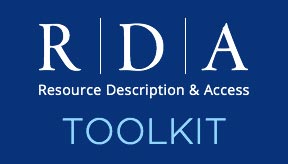About EURIG
Who We Are
The European RDA Interest Group (EURIG) is a collaborative network dedicated to the advancement and implementation of the Resource Description and Access (RDA) standard across Europe. EURIG brings together libraries, cataloging experts, and information professionals from across the continent to promote best practices in resource description and enhance the accessibility and interoperability of bibliographic data.
Our Mission
EURIG’s mission is to support the development, implementation, and harmonization of the RDA standard within Europe. We strive to ensure that RDA meets the diverse needs of European libraries and cultural institutions, fostering a shared understanding and consistent application of cataloging principles across different languages, traditions, and practices.
Our Objectives
EURIG’s primary objective is to represent European interests in the development of the RDA standard and to promote its adoption across Europe. This includes:
- Harmonising RDA with European Practices: EURIG works to ensure that RDA is compatible with European bibliographic traditions, such as the use of authority control and classification schemes that differ from Anglo-American systems.
- Advocacy and Representation: EURIG acts as the voice of European cataloging communities in the global development of RDA. We represent the interests of our members in discussions with the RDA Steering Committee (RSC) and other international bodies. EURIG participates in international forums and committees to advocate for European needs. This representation is critical in influencing the ongoing development and revision of RDA.
- Support and Training: EURIG provides resources, training, and workshops to help European libraries adopt and implement RDA in their cataloging workflows. This includes translating RDA into different European languages.
- Collaboration and Networking: EURIG acts as a network for European libraries to share experiences, challenges, and best practices in implementing RDA. The group organises annual meetings and working groups to address specific issues related to RDA adoption. We encourage the exchange of ideas, best practices, and innovations in the field of resource description. A list of the Annual Meetings can be found here.
- Research and Development: We contribute to the ongoing development of RDA by conducting research, testing new approaches, and proposing changes to the RDA Toolkit that address the specific needs of European users.
- Providing Feedback: We actively contribute feedback to the RSC on proposed changes and developments within the RDA Toolkit, ensuring that the European perspective is well-represented.
Our Members
EURIG’s membership represents a wide range of institutions from across Europe, showcasing the diversity and breadth of our community. Our members include national libraries, academic institutions, library networks, and bibliographic agencies, each contributing their unique perspectives and expertise to the ongoing development and implementation of the RDA standard. From the British Library to the Vatican Library, and from the National Library of Finland to the Biblioteca Nacional de España, our members span the continent, reflecting the rich cultural and linguistic diversity of Europe’s cataloguing landscape. Together, they form a collaborative network dedicated to advancing resource description and access, ensuring that RDA meets the needs of libraries and cultural institutions throughout Europe.
Join Us
EURIG is open to all European institutions and individuals interested in the implementation and development of RDA. By joining EURIG, you become part of a vibrant community committed to advancing the field of resource description in Europe and beyond. Together, we work towards a more unified and effective cataloguing practice that meets the diverse needs of our libraries and cultural institutions.
Interested in joining EURIG? Fill out our contact form to send us a 'I want to join' request, and we'll get back to you with more details on how you can become part of our vibrant community.
